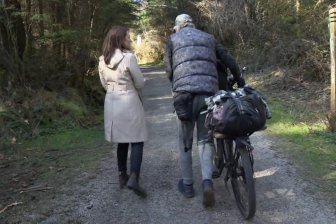Winnipeg Mayor Brian Bowman has revealed more about what the city may do to help ease the financial strain facing Winnipeggers during COVID-19.

Councillors will meet Friday to vote on an administration report recommending the city defer property and business taxes during the outbreak.
At an afternoon press conference Thursday Bowman said the plan would see the city waive penalties on unpaid 2020 property and business taxes for three months following the due date.
The city would also forego the enrollment fee for its tax installment payment plan (TIPP) from April 1 to Sept. 30 in an effort to encourage Winnipeggers to sign up for the program which allows residents to make monthly payments instead of paying the entire tax payment at once.
Charges for insufficient funds or late fees through TIP would also be waived, Bowman added.
The report to council estimates the city will lose $5.2 million in revenue by instituting the measures.
The report also projects a budget shortfall of $32.7 million if the pandemic continues to impact city finances until the end of April, and that number increases to $73.2 million if the impacts carry on until the end of July.

The report says the city’s Financial Stabilization Reserve can be drawn on to cover a tax-supported budget shortfall, but adds layoffs may be necessary at some point.
Bowman stressed those who can still pay their taxes need to do so.
“To be clear, this is not a broad deferral for all — these measures are aimed at those who are unable to pay their taxes,” he said. “Taxes will still be owed and tax due dates have not changed.
“Those who are able to meet those due dates are encouraged to do so.”
The plan still needs approval from council at the special meeting called for Friday.
“This really is an unprecedented and historic measure by the City of Winnipeg,” said Bowman.
“The opportunity to provide some relief is something I hope we’re able to get passed tomorrow.”
City Hall shuts to public, state of emergency considered
The special meeting of council will likely look different than previous meetings after the city announced Thursday city hall will be temporarily closed to the public starting Friday morning.
In a release, the city said the Susan A. Thompson Building will remain open for 311 access.
The city says delegations will still be able to speak at Friday’s special meeting, however only those registered to speak will be allowed to enter city hall.
City council meetings can be viewed live online through the city’s website.
Councillors will also consider declaring a state of local emergency under the Emergency Measures Act at Friday’s meeting.
Bowman has previously said declaring a state of emergency would give city officials the power to do things like limit access to certain areas and have buildings secured in order to provide services during the pandemic.
Council will also look at holding council and committee meetings over video-conferencing for the next three months when they meet Friday, Bowman said.
Current bylaws don’t allow for council or committee meetings to be held remotely, he said.
He said councillors will practice physical distancing and respect public health orders at the meeting.
The meeting is scheduled to get underway at 9:30 a.m.

Questions about COVID-19? Here are some things you need to know:
Health officials caution against all international travel. Returning travellers are legally obligated to self-isolate for 14 days, beginning March 26, in case they develop symptoms and to prevent spreading the virus to others. Some provinces and territories have also implemented additional recommendations or enforcement measures to ensure those returning to the area self-isolate.
Symptoms can include fever, cough and difficulty breathing — very similar to a cold or flu. Some people can develop a more severe illness. People most at risk of this include older adults and people with severe chronic medical conditions like heart, lung or kidney disease. If you develop symptoms, contact public health authorities.
To prevent the virus from spreading, experts recommend frequent handwashing and coughing into your sleeve. They also recommend minimizing contact with others, staying home as much as possible and maintaining a distance of two metres from other people if you go out.
For full COVID-19 coverage from Global News, click here.
- Naloxone-resistant street drug linked to 9 deaths in Eastern Canada seized in Alberta
- ‘She gets to be 10’: Ontario child’s heart donated to girl the same age
- Buzz kill? Gen Z less interested in coffee than older Canadians, survey shows
- Bird flu risk to humans an ‘enormous concern,’ WHO says. Here’s what to know




Comments